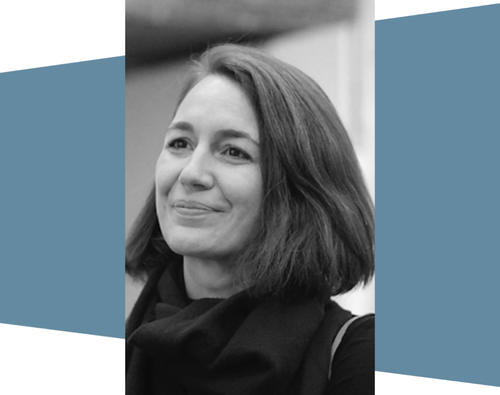Erika Balsom
Erika Balsom ist Reader in Filmwissenschaft am King's College London und promovierte in "Modern Culture and Media" an der Brown University. Sie war ebenfalls an der kanadischen Carleton University in Ottawa sowie der University of California, Berkeley, tätig. Balsom forscht an der Schnittstelle von Kunst- und Dokumentarfilm, im Besonderen zu feministischen Perspektiven und experimentellen Praktiken von Kunst und Kino.
2022 kuratierte sie gemeinsam mit Hila Peleg die Ausstellung "No Master Territories: Feminist Worldmaking and the Moving Image" am Haus der Kulturen der Welt in Berlin. Im Fokus der Ausstellung stand dabei die Frage, wie sich Bewegtbild als Ressource feministischer Fantasie verstehen und nutzen lässt. Begleitend zur Ausstellung veröffentlichen Balsom und Peleg das Buch Feminist Worldmaking and the Moving Image (2022). Jüngst erschien Balsoms langer Essay TEN SKIES (2021) bei Fireflies Press, in welchem sie sich mit dem gleichnamigen Dokumentarfilm von James Benning auseinandersetzt.
Three Quick Questions:
In a few words, can you tell us about your current research interest?
I recently finished a large project that culminated in the exhibition "No Master Territories: Feminist Worldmaking and the Moving Image," which is currently on view at the Muzeum Sztuki Nowoczesnej in Warsaw. As a result, I’m now taking some time to regroup and reflect on my next steps. In the meantime I’m working on two articles: one on the extensive film programme that accompanied Jean-François Lyotard’s 1985 exhibition "Les immatériaux," and another on a cycle of recent works by the US artist Peggy Ahwesh that appropriate animated news footage from the internet.
How do you relate the term poiesis to your work?
Poiesis isn’t a word that I use often, but perhaps it resonates with something that is very important to me: a commitment to thinking about artistic practice in a holistic way. Sometimes, scholars cherry-pick works to put in dialogue with theory, instrumentalizing them and neglecting to attend to the contexts of their making. The latter is something that is very important to me, and has only become increasingly so in recent years when I have engaged more in activities of curating and criticism.
Which film or other audiovisual format has resonated with you lately and why?
Recently, I was a jury member at the Jeonju International Film Festival. We awarded the special jury prize to Paul Preciado’s Orlando: My Political Biography – a fun and whip-smart essay film that adapt and contests Woolf’s novel while translating Preciado's thinking into a gender- and genre-bending cinematic form.
